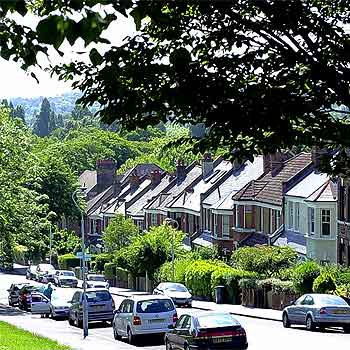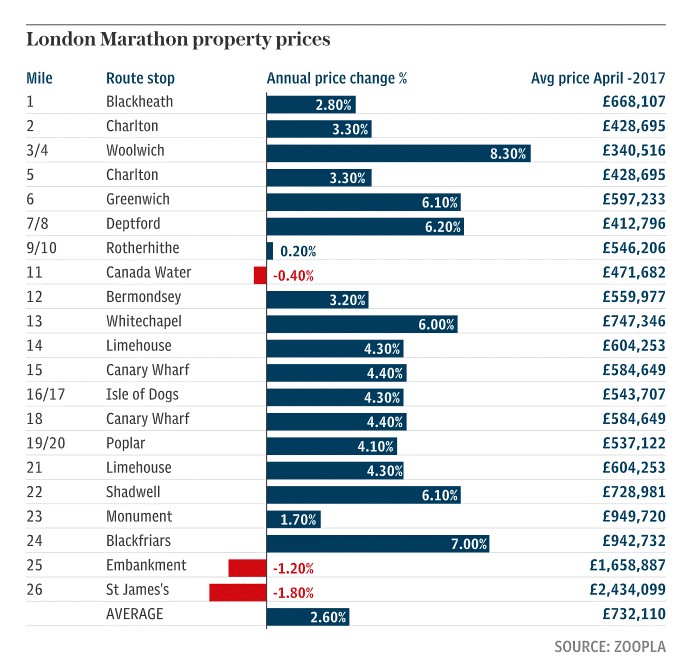306: Tax, the wealthy, landlords and serious money
02-05-2010
PropertyInvesting.net team www.google.com
www.google.com
Wealth Creation: This property website tries to help all individual property investors make good returns no matter whether they are ultra-wealthy or just starting out. This Special Report is aimed at the more wealthy investor and/or the smaller investor that has a rapidly growing portfolio and wealth profile. You are one of 40,000 people that visitor our website each day. The reason why people visit is because they want to make money out of property investing. We cant image any other core reason tha t people visit a website called PropertyInvesting .net . Visitors tend to be highly motivated individuals that want to make serious money.....why else would they visit this website?
t people visit a website called PropertyInvesting .net . Visitors tend to be highly motivated individuals that want to make serious money.....why else would they visit this website?
Insights: What we will tell you now we hope you will find insightful and thought provoking give you pointers to creating greater wealth and financial security.
Taxation Shift: There has been a huge shift in taxation recently for all individuals no matter whether they are wealthy or not. The complexity of the UK tax system is now incredible we often think its purposely designed to be so complicated, people get demoralised, confused and therefore don't bother trying to defeat it. There are new armies of tax consultants and accountants ready to help of course taking fees from individuals much of this advice is good and can save a small fortunate but at a further cost over and above the taxation. the shear complexity means more fees to prevent mistakes being made - and repercussions for mistakes seem to be getting more severe - and threatening press releases from the tax offices.
40% and 40% to 18% and 50%: Directionally, this is what has happened:
· Capital gains tax has decreased from 40% with tapered relief over ten years to a flat 18% tax with no tapering. However, capital gains on company sales has increased from 8% to 18%.
· Earning income tax will increases on April 6th 2010 for income over £138,000 per annum being taxed at 50% instead of 40% - this earned income includes annual bonuses, share option sales, dividends, savings interest etc. All earned income in a year for an individual is rolled up. Between £45,000 and £138,000 the tax rate remains 40%.
Penalised Employees earning Over £138,000: One can see for the wealthy individ uals with well over £138,000 earned income (employees) who invests in property will see instead of 40% earned income and 40% capital gains tax, 50% tax on earnings and 18% on capital gains tax. These means that income invested in property that is then developed and sold rapidly for a profit will see only 18% tax (instead of the original 40%).
uals with well over £138,000 earned income (employees) who invests in property will see instead of 40% earned income and 40% capital gains tax, 50% tax on earnings and 18% on capital gains tax. These means that income invested in property that is then developed and sold rapidly for a profit will see only 18% tax (instead of the original 40%).
Not penalised investment risk takers: Whether by design or mishap, this system encourages people to take investment risk we thing this is a good thing. If you work as an employee earning a large salary, one could argue you get a high degree of security, ability to raise finances (borrow to invest) and are protected by a company or public sector umbrella of security. Employees have been targeted most likely because the government do not believe they will leave being employees because these people have always been employees (not sole traders, private investors or business owners) and are easy picking for achieving increases in tax revenue. The vast majority of people are employees - with families and mortgages - with all respect, most don't know anything outside this security - and are not keen to try or risk this. Of course, most people are furious with these tax increase - we don't blame them either. And we are trying to be plane about what is happening - to improve understanding.
Sole Trader Struggles With Finance: Meanwhile, the sole traders and investors will be taking high risk, have little means of raising finance because they have no security of tenure, and therefore although returns are potentially a lot higher, so is the risk. One can start to understand why capital gains tax at  18% rather than the original 40% makes sense. Now new bank regulations have come into force that make self assessment for raising finance on property almost impossible resulting in all but salaried employees will find it difficult raising finance even if you have huge cash reserves - and you can understand why it's not prudent to over tax these risk takers. They are the small business people who will potentially add new jobs whilst taking relatively high risk.
18% rather than the original 40% makes sense. Now new bank regulations have come into force that make self assessment for raising finance on property almost impossible resulting in all but salaried employees will find it difficult raising finance even if you have huge cash reserves - and you can understand why it's not prudent to over tax these risk takers. They are the small business people who will potentially add new jobs whilst taking relatively high risk.
Opportunities: Anyway, whether we like it or not, whether we are an employee or not there is definitely "currently" an opportunity to invest in property, make rapid capital gains on land and development then only be liable for a fairly meagre 18% take on proceeds. No bad.
If you can find any way of using earned income to invest in property reducing your threshold below £138,000 per annum, then make capital gains at 18% tax rate, this could be hugely beneficial.
Take heart from the following:
· If you are a property investor, you should be quietly proud of this you are in the private sector providing a valuable service to the community. 50% of workers are public sector and they are ALL paid for from taxes and proceeds from the private sector the engine of the country. Without the private sector, there can be no public sector.
· Stand tall if you are wealthy and have a business you are providing employment, tax revenues, housing and all the off-shoots of this regeneration, improvements etc. You are paying for the public sector and regulators.
Proud to be a private property investor: Never be ashamed of making an honest profit in fact, you should be proud of it. Someone has to make profits otherwise there is no-one to pay for the public sector and government.

Okay, we do not advise singing your own praises from the roof tops in Britain is seems rather unpopular to spout ones mouth off about how much money one has made. Most people find it either tacky or boring they have no interest in it - most wont understand how making money can be so exciting - most people get excited about spending it!
So best keep your mouth shut unless it's someone with genuine interest and that understands where you are comig from - and that you can trust. Idle gossip will only come back to haunt you. Give no-one any ammunition to shoot you down. Best quietly get on with your own business the mastery of making money people will not praise you openly for it. Most people will be envious or even jealous - or just won't care either way. Best way to accumulate wealth is in your own quiet way and serving people along the way.
Low Key or Threats of Being Chopped Down to Size: If you really want to spout your mouth off and get excited about making serious money, the best way is to find like-minded property investors that have a similar passion. You will immediately hit it off. You will talk for many hours. Doesnt matter who this might be there could be a 40 year age gap, or you might be from different parts of the world property investing and the mentality of wanting to acquire and make serious money from property is a trait that is common to may be only 10% of a country's population. When you find these 10% people you will potentially have some great fun. Whether this is cycling around a neighbourhood looking for the next deal, or sharing good practices in a pub, or emailing a group of investors on your latest learning, opportunity or mistake, it will be motivating, uplifting and fun. You will find people you can trust to talk to. People that understand. People that will not want to undermine you or "chop you down to size.
Regulation Caused Rents to Rise: As regulation increases, the demands of keeping up with the regulations and standards will drive many property investors away. We believe this is likely to reduce competition and the numbers of small investors, then rents should rise because of this. The property investors generally have the pick of properties because of their experience, not being in a property chain, funding and ability to transact without problems (unlike first-time buyers). There ability to get "low-ball" offers accepted which then reduce the investment risk.
New Regulations and Landlord Bashing: Example of recently announced plans to increase regulation and dissuade landlords from being Landlords are:
-
Land Register Landlords will be required to register all their properties, their home address and other details on a central accessible register (the concern is such information will be open to abuse)
-
Tenant Hotline this will allow any tenant that wants to complain about his/her Landlord to telephone a hotline to make a complaint to the government
-
Website similar to TripAdviser an open forum for an tenant who does not like his/her Landlord to prepare a review and complain about their treatment by writing about them online thereby damaging the reputation of the individual landlord (details of the Landlord will of course be available on Google search etc)
 Landlord Sell Up: Is it any wander with legislation being slated for enactment this summer by the existing government Housing Minister/Government this will drive Landlords away and there will be far less private rental accommodation available for tenants. Dishonest and speculative reviews by tenants without any re-course from Landlord will put a lot of existing and prospective Landlords off. So the amount of rental property we believe for let will decline if these legislations come into force, and rents will therefore rise because of shortage of supply. Lets face it will the average individual want to expose themselves to abuse from such a website at the whim of their tenants? We think this will put a lot of Landlords off and may make some people sell-up their portfolios. This is not the intended consequence of this type of regulation but realistically we believe this will happen. Sound rather like Landlord Bashing like Banker Bashing. So if you are an employee of a company, the threat is your name and address will be plastered all over the internet by summer with dreadful reputation damaging remarks you might have your boss coming up to you to ask you to explain yourself! More legislation is designed to make it even more difficult for the individual to invest and make returns whilst providing a much needed service. Has the world gone mad?
Landlord Sell Up: Is it any wander with legislation being slated for enactment this summer by the existing government Housing Minister/Government this will drive Landlords away and there will be far less private rental accommodation available for tenants. Dishonest and speculative reviews by tenants without any re-course from Landlord will put a lot of existing and prospective Landlords off. So the amount of rental property we believe for let will decline if these legislations come into force, and rents will therefore rise because of shortage of supply. Lets face it will the average individual want to expose themselves to abuse from such a website at the whim of their tenants? We think this will put a lot of Landlords off and may make some people sell-up their portfolios. This is not the intended consequence of this type of regulation but realistically we believe this will happen. Sound rather like Landlord Bashing like Banker Bashing. So if you are an employee of a company, the threat is your name and address will be plastered all over the internet by summer with dreadful reputation damaging remarks you might have your boss coming up to you to ask you to explain yourself! More legislation is designed to make it even more difficult for the individual to invest and make returns whilst providing a much needed service. Has the world gone mad?
Housing Crisis on the Horizon: Meanwhile, by 2031 there will be 33 million households. Currently there is only 26 million. Thats an extra 7 million households in 21 years. Thats 300,000 households extra needed per annum. And dont expect the government to either build or let 7 million new properties they will want the private sector investors to do this. But they are planning to put in place another raft of  regulations that will mean it is very difficult to do this. So the whole lot frankly does not stack up. Expect shortages of properties, shortages of rental properties for let and rising rents. For the stubborn Landlord that can take the flack and abuse from websites and regulations from government returns are likely to improve. But expect to see your details plastered all over the place and your portfolio advised to the world privacy out the window and property details for all to see. And for most employees, they will be disturbed by this possibility especially as most have a respectable job with a respectable employer that relies on an impeccable reputation both employer and employee. Meanwhile, building has almost ground to a halt. One can see that in areas of rapidly growing population like London, SE England and Cornwall and parts of Devon, with almost zero new homes, a property investor could make serious money from buying existing large properties and knocking them into flats or smaller homes. With capital gains tax at 18% - this looks even more lucrative. For the hardened investor, returns could be high and the extra regulation will reduce competition.
regulations that will mean it is very difficult to do this. So the whole lot frankly does not stack up. Expect shortages of properties, shortages of rental properties for let and rising rents. For the stubborn Landlord that can take the flack and abuse from websites and regulations from government returns are likely to improve. But expect to see your details plastered all over the place and your portfolio advised to the world privacy out the window and property details for all to see. And for most employees, they will be disturbed by this possibility especially as most have a respectable job with a respectable employer that relies on an impeccable reputation both employer and employee. Meanwhile, building has almost ground to a halt. One can see that in areas of rapidly growing population like London, SE England and Cornwall and parts of Devon, with almost zero new homes, a property investor could make serious money from buying existing large properties and knocking them into flats or smaller homes. With capital gains tax at 18% - this looks even more lucrative. For the hardened investor, returns could be high and the extra regulation will reduce competition.
Net 55,000 New Homes But 300,000 Needed: Remember 25,000 homes are demolished each year. But last year, only 80,000 new homes were built. Thats a net 55,000 properties meanwhile there should have been 300,000 new homes supplied. Most people can probably see that the supply/demand imbalance will remain. Each year alone 350,000 additional people arrive in Britain the population is due to increase to 70 million from 60 million today by 2050 and many more single people will be living alone. Where will they all live? Its a housing crisis currently masked by a financial crisis when demand for house purchases from pent-up demand and tenants kicks in as the economy recovers, it's most likely these strains will become more evident manifesting themselves in rising rentals and rising property and land prices particularly in southern England and close to or in London. As the financial sector recovers, London Olympics comes closer and employment rises the strains in the housing sector in SE England will start to show far more. Obviously the fierce planning regulations and lack of finance for new homes and developments will hinder home building so do not expect to see a big shift up in home completions any time soon. Most home builder almost went under about 12 months ago so will not want to over-stretch themselves in the next few years. Meanwhile the g overnment has run out of money to build their own properties after the massive public sector expansion of the last 13 years (36% to 48% of jobs are now public sector, and pension costs have sky-rocketted as have wages, particularly for senior administrators). Note that wages in the public sector have risen in the last ten years faster than in the private sector this despite the bankers! Seems rather unsustainable and we are not surprised that the UK deficit is so large because the private sector has hardly grown (the FT 100 value is lower now than 13 years ago even though inflation has averaged 2.2% per annum, a pretty good measure of how weak the private sector growth has been burdened by high taxes, more regulation and massive public sector expansion. In NE England and Scotland 48% of people work in the public sector. There has been no new jobs created in the private sector in these areas. All new jobs have been created in the public sector. No wander the UK finances are so strained - less people creating wealth are paying for more people spending it!
overnment has run out of money to build their own properties after the massive public sector expansion of the last 13 years (36% to 48% of jobs are now public sector, and pension costs have sky-rocketted as have wages, particularly for senior administrators). Note that wages in the public sector have risen in the last ten years faster than in the private sector this despite the bankers! Seems rather unsustainable and we are not surprised that the UK deficit is so large because the private sector has hardly grown (the FT 100 value is lower now than 13 years ago even though inflation has averaged 2.2% per annum, a pretty good measure of how weak the private sector growth has been burdened by high taxes, more regulation and massive public sector expansion. In NE England and Scotland 48% of people work in the public sector. There has been no new jobs created in the private sector in these areas. All new jobs have been created in the public sector. No wander the UK finances are so strained - less people creating wealth are paying for more people spending it!
Where was the house price crash? Most people are saying house prices could crash (or should have crashed) that's enough to put many people off purchasing property. Meanwhile, despite the base bank rate being 0.5%, mortgage rate are about 4.5 to 5.5% - a massive differential unseen in the last 50 years. The banks can make massive profits and from the revenues from the borrowers the Landlords and home owners. Meanwhile it is exceedingly difficult to raise finance for purchases for expansions to one's portfolio. Hence there is a creeping under-supply of private rental accommodation that will become  evident shortly we believe. Its difficult to see with such a low level of new homes being built, a rising population and increase in small families or singles living alone that demand will not stay high and supply will lag behind in southern England in particular. Even a complete drying up of all mortgage financing and a 30% increase in unemployment did not create a crash during a period of financial meltdown prices dipped about 15% and have since risen back close to their peak of end 2007. Okay, the government has printed billions of pounds, base rates are at 0.5% and public spending is still strong but it does demonstrate how desirable and how desperate people are to hang on to their real estate whether it be their homes or investment property.
evident shortly we believe. Its difficult to see with such a low level of new homes being built, a rising population and increase in small families or singles living alone that demand will not stay high and supply will lag behind in southern England in particular. Even a complete drying up of all mortgage financing and a 30% increase in unemployment did not create a crash during a period of financial meltdown prices dipped about 15% and have since risen back close to their peak of end 2007. Okay, the government has printed billions of pounds, base rates are at 0.5% and public spending is still strong but it does demonstrate how desirable and how desperate people are to hang on to their real estate whether it be their homes or investment property.
Aspiration to Own Property: We do not thing the British aspiration to own a home will go away its a cultural trait that is engrained by parents into children and encouraged by parents, peers and the government. This is why so many baby-boomers hand out deposits to their children to help them onto the property ladder to coin a rather old fashioned expression. To think well all go German and want to live in rented accommodation for the rest of our lives is rather ridiculous. Were more like the Spanish and the Irish with 80% home ownership rather than 45%.
We just dont believe all the young people will want to live in rented  accommodation all their lives instead, they will also want to purchase a home - this should drive property prices higher in the longer term. Furthermore, the government has been desperate to create some form of inflation or growth to keep the economic momentum going and have the effect of reducing debit, through inflationary affects over time even to the extent of printing money. As long as inflation remains under control and interest rates do not go shooting up property prices are likely to stay the same or move higher over time.
accommodation all their lives instead, they will also want to purchase a home - this should drive property prices higher in the longer term. Furthermore, the government has been desperate to create some form of inflation or growth to keep the economic momentum going and have the effect of reducing debit, through inflationary affects over time even to the extent of printing money. As long as inflation remains under control and interest rates do not go shooting up property prices are likely to stay the same or move higher over time.
People Dont Move Anymore: In the 1970s, the average home owner moved house every 6 years. Today, the average home owner moves every 18 years that's staggering. This lack of mobility. Why? We believe stamp duty has a lot to do with it its now so high compared with years ago, that people dont want to give the government a large tax sum every time they move. When they do move, they often keep their old property and rent it out. This also saves estate agent fees, solicitors fees and the stress of a sale. They then start amassing a property portfolio. Many people have kids that are settled in a school and are reluctant to disturb this so they telecommute they may be spend 4 days a week in London and 3 days back home in Scotland, Wales, West or North. Rather than try and move to London if a job comes up they do long distance commuting of some form or other. Moving is now so expensive that people just dont do it. No wander there are so few properties on the market houses in particular. Its no co-incidence. Our steer is if you can afford it buy houses (not flats). They dont have to be big houses if they have a garage, garden, are in a quiet street and close to excellent rail and roads, then this will help. Good local and London jobs helps. Flats are also okay, but builders tend to build 80% of their homes as flats so houses will be in short supply in the next twenty years, whilst flat supply and demand will fluctuate more.
What Type of Property Is best? So if you can purchase a small house with garage/garden for an excellent price, on an excellent commuter route to London, in a good quiet area, with excellent schools close by we do not believe you can go far wrong. Scouring places like Woking, Bedford, Gravesend, Bean, Southfields, Maidstone, Reigate-Redhill, Stratford, Croydon, Ashford, Hook, Southfields, Barnet and Battersea for such properties the very best deals on houses is a low risk strategy. If you can find a property that can easily be renovated without high cost even better. The best are
· basements that can be easily converted (7ft high ceilings preferred and dry)
· lofts that can easily be converted (make sure beams are strong and dont need reinforcing)
· gardens that can be built on
· a garage that can be easily added to
· rooms or outbuildings that can be converted
You can scroll through our other special reports to get specific details on how to add value to property and the best places to invest in, in our opinion.
The percentage game: For now, all the best for your property investing in 2010 and we think it will all be worth the hassles. We believe it is the only low risk and viable way of making serious money for the vast majori ty of people for example, ever met someone you know who made a million from stocks and shares alone? Answer in 98% of cases is no. Ever met someone you know who made a million from property? Answer in 98% of cases is yes. And answer in 25% of cases with our website visitors is probably yes, myself!
ty of people for example, ever met someone you know who made a million from stocks and shares alone? Answer in 98% of cases is no. Ever met someone you know who made a million from property? Answer in 98% of cases is yes. And answer in 25% of cases with our website visitors is probably yes, myself!
If anyone has found someone that tried to make a million out of property and failed then tried to make a million out of investing in stocks and shares and succeeded then youll be in a truly unique position of finding that one person we have never managed to find!
We hope this special report has given you insights into property tax, being a landlord and property investment in the UK in the current challenging environment. If you have any comments, please contact us on enquires@propertyinvesting.net


